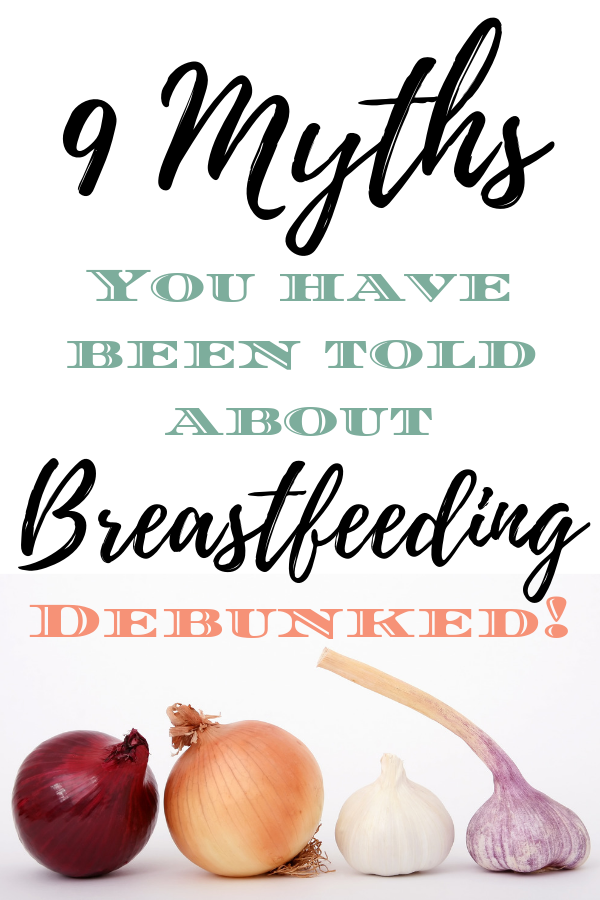Disclosure: This post may include affiliate links through the Amazon affiliate program or other affiliate partnerships. If you click on a link and buy something, I may receive a commission, at no additional cost to you. You can read more boring disclosure details in my disclosure and privacy policy.
“First drink in 9 months! Dad is watching the baby and I’m pumping and dumping tonight!”
Does this sound familiar?
Surely everyone has scrolled through Facebook and seen a picture of one beer with this common caption of the mother expressing her excitement over drinking, followed by pumping and dumping.
Guess what? This mom definitely does not need to pump-and-dump after only one beer. She is doing what she thinks is best for her baby, but it might not be the best choice after all as she cries while pouring her liquid gold down the drain.
Sadly, pumping-and-dumping is an idea that she has heard in mom circles for years, so she thinks it’s true, when all it is is a myth.
In this post, I plan on tackling the common myths surrounding breastfeeding, including pumping-and-dumping, or cracked and bleeding nipples (yes, the word nipple will be said a lot here, and that’s ok!).
As with all breastfeeding posts, let me preface this by saying that I am not a lactation consultant or a doctor. However, due to my struggles breastfeeding initially, I definitely soaked up every ounce of information I could from the consultants I saw.
Also, everything I am writing here can be confirmed on the Le Leche League website, or by searching for it on Google and reading from a trustworthy source (i.e., a medical website, not mom forums!).
With some of these myth busters, it is up to you to decide what you are comfortable with. So, be sure to follow up with a lactation consultant before changing anything in your breastfeeding routine. You may also want to discuss changes with your pediatrician, but in my experience, lactation consultants are far more knowledgeable when it comes to breastfeeding.
With that said, I hope dispelling all of these myths you have been told will encourage you and be a light in the tunnel of swirling opinions and judgmental waitresses.
Myth #1 – Pumping-and-Dumping
Let me paint you a picture of how I thought milk production worked:
I thought that when I consumed something, like alcohol, medication, or food, it was processed by my body and part of it was turned into breastmilk. So, I thought that if I had alcohol, my body processed it, and the alcohol was turned into some form of alcoholic breastmilk.
Then, I thought I needed to pump all of the ‘bad’ milk out so that my breasts could refill with ‘good’ milk. I would obviously dump the ‘bad’ milk. Did anyone else think this way? No? Just me?
In reality, without getting too technical here, alcohol exits your breastmilk at the same rate as the bloodstream. The amount of alcohol in your bloodstream is directly related to how drunk you feel, and to how much alcohol is in your milk. In other words, if you can feel the alcohol, then so can your baby.
This also means that expressing milk through pumping-and-dumping does not rid the breastmilk of alcohol. If you are still drunk the next time you pump or nurse, then your breastmilk will still have alcohol in it because the alcohol is still in your bloodstream. (You can read a detailed explanation of this by the CDC here.)
So what does this mean exactly? It means that you shouldn’t get wasted and then breastfeed, but you can enjoy your one beer with dinner, and be perfectly fine to nurse your baby later. If you are safe to drive, you are safe to nurse.
This also means that you don’t need to waste money on alcohol test strips for your milk. My lactation consultant said she would only recommend these to an alcoholic.
If you want to be extra cautious, you can have your drink, and then wait two hours before nursing again. But please, enjoy your first drink since pregnancy with zero guilt – you’ve waited long enough!
Myth #2 – You can’t take any medication while breastfeeding
Unfortunately, breastfeeding is an area where doctors may not have your best interest in mind when they prescribe a medication.
Don’t get me wrong, doctors are great! They save lives! But legally, when they prescribe certain medications, they cannot recommend that you breastfeed because they risk getting sued if someone claims their baby was harmed by breastfeeding after taking the medication.
With that said, unless there is research suggesting a medication has a harmful effect on a baby, there is no reason why the mother should not breastfeed.
Unfortunately, I have had to learn this the hard way. After several medical issues that I’ve faced after giving birth, I have been told I need to pump-and-dump for 24-48 hours after a medication, or that I needed to stop breastfeeding entirely because I would be using a medication long-term.
Each time I am told I need to avoid breastfeeding to some extent by a doctor, I ask what the research shows. They respond by saying that they are unfamiliar with the research, but that they have to recommend that you not breastfeed.
After that, I seek out advice from lactation consultants, useful websites such as LactMed or the Infant Risk Center, and doctors that are not ordering the prescription. I have to be the advocate for myself and my baby and ask for the research. Sadly, the healthcare system is not set up to support breastfeeding mothers, and you will have to work harder than you should to be able to continue breastfeeding while getting the medical treatment you need.
I write this to encourage all of the mothers reading that you can care for yourself and your baby. If you are passionate about breastfeeding, you likely do not need to stop because of your medication.
If you think about it, if every woman that was taking some form of prescription medication stopped breastfeeding, or pump-and-dumped each time they took an Advil, there would hardly be any nursing mothers left.
Bottom line: It is possible to breastfeed while taking medications. Work with a lactation consultant and a doctor to come up with a plan that is best for you and your baby, and that makes you comfortable.
Myth #3 – It’s normal for breastfeeding to hurt
I have seen far too many blogs on ‘the postpartum experience’ where the writer says “my whole body tensed up in pain every time my baby latched” or “get ready for cracked and bleeding nipples.”
No, no, no!
Please do not believe the myth that it is normal to have pain while nursing. Cracked nipples, bleeding, blisters, sharp pains – these are all signs that there is an underlying issue that needs to be addressed.
Seek out the help of a lactation consultant if you have anything other than a momentary soreness when the baby latches during the newborn days.
This doesn’t mean that you won’t have the occasional painful moment, like when your baby decides to pull off your nipple and whip their head around. But, ongoing pain is not normal.
When you read blogs about bleeding nipples, don’t be scared! The problems can be addressed at the first sign of pain. You should be excited to breastfeed your baby! Relax, and that will help your baby relax too.
Myth #4 – You need to avoid foods like garlic, onion, and dairy.
I frequently hear moms say that they have had to give up foods like onions, garlic, dairy, broccoli, or caffeine because they are nursing. This will probably be controversial to say, but in most cases, the mother’s food is not the problem.
My lactation consultant informed me that unless you are eating copious amounts of one food, it does not have a physical effect on your child. She told me a story of a newborn baby she was working with that had black, tar-like poos. She then discovered it was because the mom had been eating giant portions of eggplant parmesan that someone had dropped off. This is the exception, not the norm.
Like anything in life, most things are ok in moderation! Yes, drinking 5 cups of coffee might give your baby some caffeine. Or eating 5 bulbs of garlic in one sitting may make your baby gassy. But normal amounts of these foods will not have an effect on your baby.
In fact, if you ate food like garlic and onion while pregnant, these strong flavors were in your amniotic fluid. Your baby is probably already used to a garlic flavor. And if you eat a large variety of foods and a well-balanced diet while nursing, your baby will be exposed to these flavors through your breastmilk and will be less likely to be a picky toddler. A well-balanced diet can do wonders for the quality of your breastmilk (and garlic can actually increase milk production!).
If onions, garlic, or spicy food were truly a problem, then all of the breastfeeding women in India would be doomed. And if dairy were the issue, all the women of France would be very sad.
Now, this is the part where I have to qualify everything I’m saying. If your baby has a true allergy, then you may have to cut one food group out of your diet. For example, if your child has severe eczema, then dairy may be the culprit. Or, if extreme peanut allergies run in your family, you may want to have your baby tested before eating peanuts yourself. However, some fussiness or gassiness here and there is not caused by food; this could be any number of other issues, such as a poor latch.
If you are told to avoid one type of food because an allergy is suspected, remove one variable at a time. Meaning, if your baby has eczema, don’t change their detergent, give them oatmeal baths every night, and cut out dairy from your diet. If you do, and the eczema improves, you won’t know what caused the eczema in the first place. Work with a lactation consultant and your pediatrician to come up with a solution that is best.
Tl;dr – When a nice friend brings over that delicious lasagna after you give birth loaded with cheesy, garlicky, oniony sauce, eat up!
Myth #5 – Breastfed babies don’t sleep
This myth got started because in the baby’s early weeks, a breastfed baby might wake up more often than a formula-fed baby.
This is not because breastfed babies are poor sleepers; this is because breastmilk is more easily digested than formula. So, in the first few weeks, the baby metabolizes the breastmilk more quickly and will wake up sooner to be fed.
However, after about six to eight weeks, all babies have the ability to start sleeping longer and go longer in between feeds, regardless of how they are fed.
If your baby isn’t sleeping well, it is not because they are breastfed. There are about 50 other reasons why they might be waking up at night. Oh, the joys of motherhood – you might not have realized you were also signing up to be a detective.
Myth #6 – Using a pacifier or bottle will cause nipple confusion
Many sources online will tell you not to introduce a single plastic nipple until the breastfeeding relationship is well-established at about six weeks.
There is a bit of truth to this, but it is much more nuanced than it seems. I think clearing up some of this confusion will help reduce the mom-guilt when you want to give your baby a pacifier, or go out on a date and give your baby some pumped milk via a bottle.
First, let’s tackle pacifiers. You may tell yourself that you wouldn’t dare give your baby a pacifier before six weeks because of the dreaded nipple confusion. But if you’re anything like me, you’ll change your mind when it’s 2 am, you’re exhausted, you know your baby is full but she wants to keep sucking on something, but you just want to sleep. You better believe I ripped open that pacifier package (no, I didn’t sanitize it in boiling water, gasp!), and put it in my baby’s mouth. We both slept for a blissful three hours.
The thing is, babies are smarter than we give them credit for. They know where milk comes from. And they know that the little plastic thing you just put in their mouth isn’t where milk comes from. Pacifiers will not cause your baby to be confused about how to extract milk from your breast. Plus, they reduce the risk of S.I.D.S., which is a huge win!
Babies simply have a very strong sucking reflex that needs to be met really frequently. While the cave women didn’t have a choice and had to sleep with their baby on their breast all night, we have been given the gift of a little plastic fake boob that our babies love. Enjoy them!
Now, bottles are a little tricker. Remember how I said that babies learn where the milk comes from? Well, if you only give them bottles, then they’ll think the plastic bottle is where the milk comes from, rather than your real nipple.
This is what happened to me, because I had to pump and feed my baby for the first two weeks. When I tried to latch her on to my boob after all those bottles, she screamed because she didn’t understand. After a long process, she gradually learned that milk comes from boobs, and now we have a healthy breastfeeding relationship.
Rather than nipple confusion, babies may also develop a nipple preference. Meaning, because the milk flow from a bottle is much different and easier for the baby, if they have too many bottles they may prefer the bottle over your breast.
Ready to make it even more confusing? Many lactation consultants actually recommend that you give your baby a bottle before six weeks or they may reject the bottle. This also happened to me! I was so excited to not be pumping anymore that I was lazy and never pumped. Then, when I was ready for a date night a couple months later, my baby screamed rather than drinking the milk in the bottle.
So where is the sweet spot? After about four weeks, if you have a healthy breastfeeding relationship, give your baby one bottle per day. This will not jeopardize the nursing relationship in any way, but it will mean that your baby will accept a bottle when you go back to work or on a date night.
Myth #7 – You need to toughen up your nipples while pregnant
This is an old wives tale that says that you should toughen up your nipples before giving birth. One woman from my church told me that she remembers when she was pregnant, 20 years ago, standing in the shower rubbing her nipples until they were sore.
In truth, your body has natural ways of toughening up your nipples during pregnancy. In fact, trying to toughen up your nipples could have negative effects on your milk production. Just sit back and let your body do what it was meant to do!
For example, your body produces hormones that relax the skin and make your nipples extra stretchy. This is so weird to type, but I think we should embrace how wonderfully our bodies were designed.
Myth #8 – You can’t nurse if you have flat or inverted nipples
This myth makes me particularly sad, because it is being perpetuated by OBGYNs.
I have had some women look at me while I’m feeding my baby and say wistfully, “My doctor told me I wouldn’t be able to breastfeed because I have flat nipples.”
It’s called breastfeeding, not nipple feeding. The baby takes a large part of the breast into its mouth, and then the suction can handle the rest. It may take different latching techniques than someone with prominent nipples, but it is possible. A lactation consultant can help!
Again, I bring up the example of the cavewomen, and actually all women in the entire history of the world before formula and breast pumps. Do you think these women had people looking at their breasts and telling them they weren’t the right size or shape to feed their child? Of course not! Breastfeeding was the only option, so that’s what they did.
Sometime’s I’m jealous of mothers of the ancient world. They didn’t have the internet to confuse them or make them doubt themselves. They trusted their bodies to do exactly what they were supposed to do.
Conclusion
So, what are the main takeaways of this extremely long post? If you have made it this far, I’m very impressed.
- You may realize I’ve mentioned the word “lactation consultant” a lot. Go see one! They will be your rock in the world of breastfeeding.
- Trust your body.
- Eat and drink whatever you want. Just be responsible.
- Take care of yourself and your baby.
If you’ve made it this far, I’m guessing it’s because you either have a lot of questions, or you’re as into breastfeeding as I am! Let me know if you have any questions in the comments below and I would love to write back!





